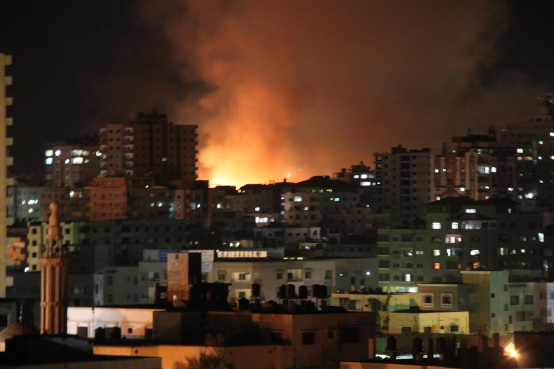Year: 2012
-
Emergency Global Actions for Gaza
Original updated document posted here For additions or corrections tweet @riverdryfilm or @southsouth or email orhamilton [at] gmail [dot] com FRIDAY, 16th November Aberystwyth (UK) | Aberystwyth University, 6:00 p.m. [link] Albuquerque (USA) | UNM Bookstore, 5:00 p.m. [link] Aosta (Italy) | Piazza Chanoux, 9:00 p.m. [link] Athens (Greece) | Israeli Embassy, 5 p.m. [link] Asheville (USA) | Vance Monument, 4:30 p.m. [link] Benghazi…
-
Gaza Under Attack: International eyewitnesses call for action
November 14th, 2012, By International Solidarity Movement, Gaza Strip Beginning at 3:35 pm today, the Gaza Strip has been shaken by several Israeli army attacks from drones, apaches, F-16s, and naval vessels. One of the first people killed was Ahmed al-Jabari, chief of staff of Hamas’ military wing. Palestinian factions vowed revenge, and their armed…
-
Letter from ISM activist in Gaza
14th November 2012 | International Solidarity Movement, Gaza Strip Dear All. I am calling on all your support for the besieged people of the Gaza Strip. Here in Gaza, more than 10 people have been killed so far in the Israeli operation named “Pillar of Defence” within the last 7 hours, including countless children such…


